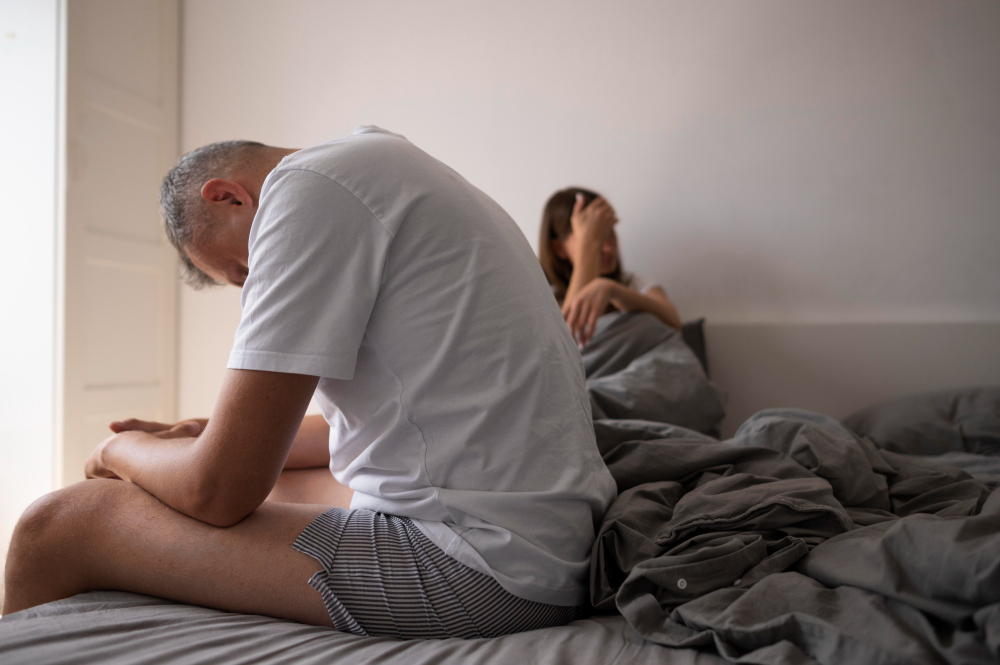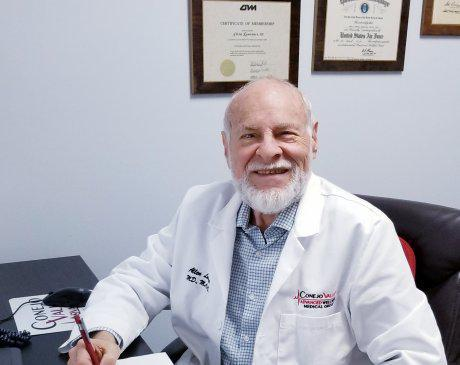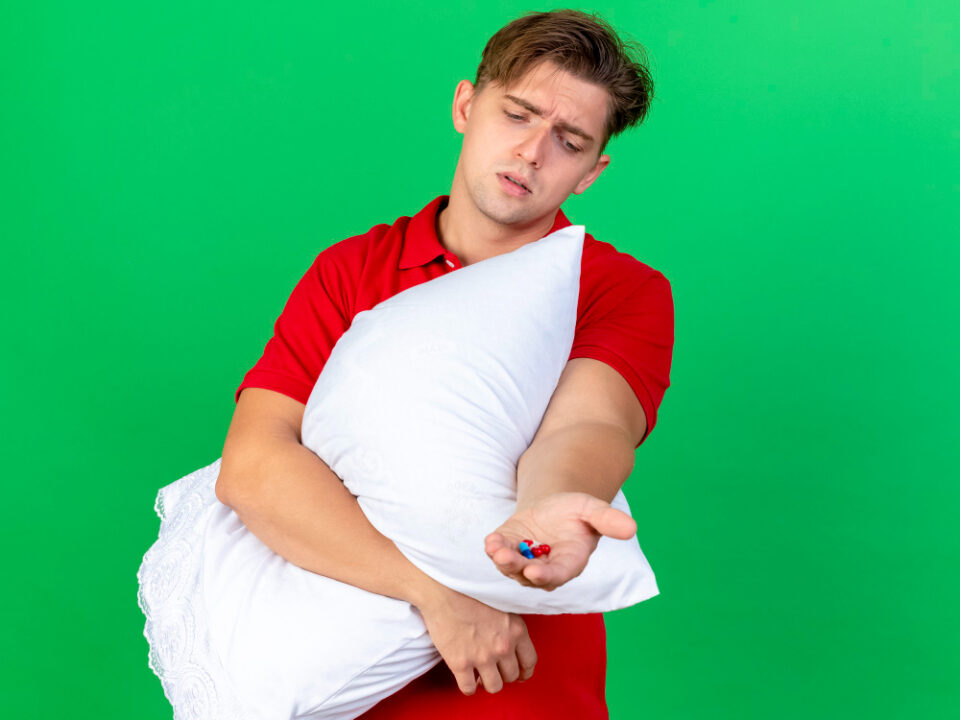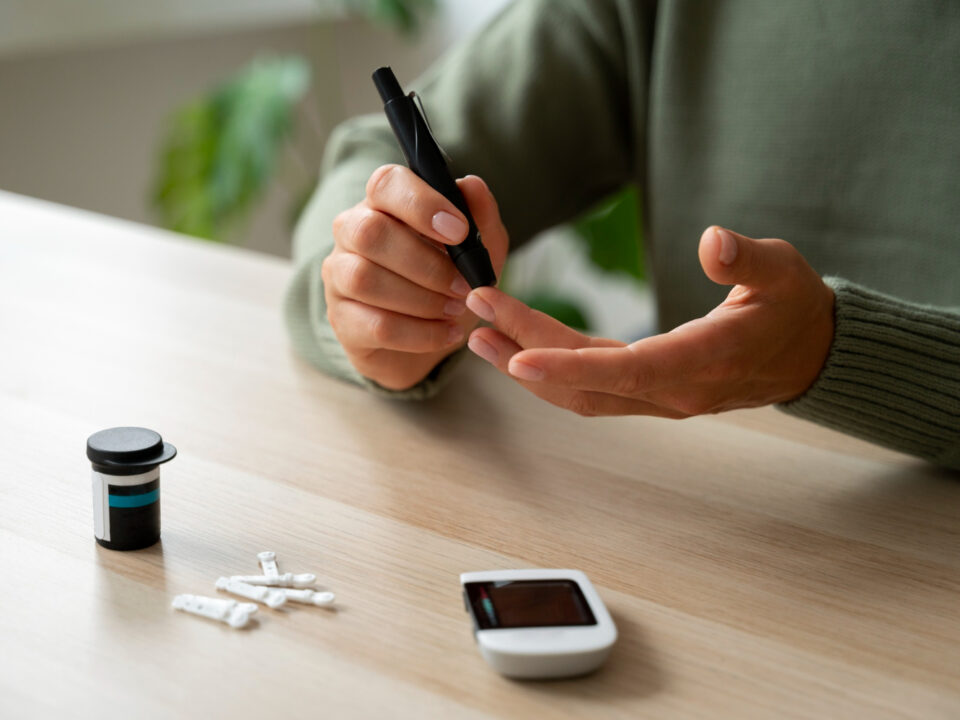- 21103 Vanowen St Woodland Hills, CA 91303 | Call us today!
- 310-879-9266
Understanding Testosterone and Erectile Function and Dysfunction (Part 1)

Testosterone, the key male sex hormone, is a fundamental component of male sexual health. It plays a vital role in regulating libido (sexual desire) and erectile function. When testosterone levels dip below normal, it can lead to a host of issues, including decreased libido and erectile dysfunction (ED). These problems not only affect a man’s physical health but also his emotional well-being and intimate relationships with girlfriend, boyfriend partner or spouse. This can, if nor dealt with and corrected lead to frustration, anger, unhappiness, separation even alienation and/or divorcee. Lots of unhappy problems.
The Impact of Decreased Libido
Decreased libido can be a distressing experience for any man. It can and often does lead to feelings of inadequacy, frustration, and decreased self-esteem. Any time a man find himself less interested in sexual activity, this can be confusing and concerning, particularly if he previously had a healthy sex drive. This change then can lead to anxiety and depression, creating a vicious cycle that further impairs his sexual function.
The effects of decreased libido extend beyond the individual. Partners may feel rejected or undesired, this can then lead to emotional distress and tension within their relationship. Misunderstandings may arise, wherein partners often misinterpreting their lack of sexual interest and desire as a lack of affection or change in their level of commitment. This may then lead to strained communication and emotional distancing, which further compounds the problem, sometime bringing it to a point when it can never be resolved.
Causes of Decreased Libido
Several factors can contribute to decreased libido, and understanding them can help in finding an appropriate solution.
- Hormonal Imbalances: One very common problem is low testosterone (LowT) levels (hypogonadism), this is a common cause especially as men move into their late forties and into their mid-fifties. This occurs because of aging, but can occur because of chronic illnesses, or conditions affecting either the testes or the individual’s pituitary gland.
- Psychological Factors: Another common reason is issues relating to mental, emotional and/or spiritual health such as stress, anxiety, and depression, conflict of self-image or self-love, midlife crises. These can significantly impact sexual desire and lead to relationship problems, which then leads to poor communications which exacerbates everything.
- Medications: Certain medications, including antidepressants, antihypertensives (blood pressure medications), even opioids, or other illegal drugs can lead to a reduction in libido as a common side effect.
- Lifestyle Factors: A whole lot of issues related to poor diet, lack of exercise, excessive alcohol consumption, and smoking can negatively affect sexual health.
- Chronic Illnesses: Conditions such as diabetes, obesity, cardiovascular disease, and sleep apnea can affect testosterone levels and sexual function.
All of the issues discussed above are reversible and can be treated it the individual looks for and/or asks for help. Nothing can be done; all of these can become chronic unresolvable problems is the individual never seeks help or refuses to listen to friends and family that are trying desperately to help him
Solutions and Treatments
Addressing decreased libido and erectile dysfunction often requires a multifaceted approach. Once again all of the above and their solutions require that they are recognized, thought bout and that the individual wants to do something to help himself. If not, there can be no easy solution. One recognized and depending on how long the problem has existed and how entrenched it is, there are solutions available. This solution may at times have one or more associated risks and/or benefits:
- Testosterone Replacement Therapy (TRT):
Benefits: TRT can often help restore normal testosterone levels, if the problem is LowT, then TRT can improve libido, increase lost energy, stabilize chaotic mood, and deal with and resolved erectile dysfunction. TRT can be administered through injections, patches, gels, or pellets. Injection is the very most reliable method for using TRT.
Risks: Potential side effects include an increase in red blood cell count (erythrocytosis), prostate issues, cardiovascular risks, and exacerbation of sleep apnea. Regular monitoring by a healthcare provider is essential and most negative side effects can be eliminated or reversed simply by adjusting or better regulating the dosage of the TRT.
- Non-Testosterone Hormone Therapy
Medications: For men with specific hormonal imbalances (other than low testosterone), such as thyroid dysfunction or hyperprolactinemia, addressing these conditions with appropriate medications can improve ED
Dehydroepiandrosterone (DHEA): DHEA is a hormone that is naturally produced by the adrenal glands. Some studies suggest that DHEA may help improve erectile function, particularly in men with ED related to low levels of this hormone. However, the evidence is not conclusive, and DHEA supplementation is not universally recommended as a treatment for ED. DHEA can have side effects and interact with other medications or health conditions.
Medical Treatments for ED
Phosphodiesterase Type 5 (PDE5) Inhibitors
- Medications: Sildenafil (Viagra), Tadalafil (Cialis), Vardenafil (Levitra), and Avanafil (Stendra) are commonly prescribed PDE5 inhibitors. These medications enhance the effects of nitric oxide, a natural chemical the body produces to relax muscles in the penis, increasing blood flow and enabling an erection in response to sexual stimulation.
- Benefits: These medications enhance blood flow to the penis, facilitating erections. They can be very effective for many men with ED.
- Risks: Side effects may include: headaches, flushing, nasal congestion, and, rarely, vision or hearing changes. They are contraindicated in men taking nitrates for heart conditions.
Lifestyle Modifications
- Diet: A balanced diet rich in fruits, vegetables, whole grains, and lean proteins can improve overall health and reduce ED symptoms.
- Exercise: Regular physical activity, particularly aerobic exercise, can improve cardiovascular health and blood flow, reducing ED symptoms.
- Weight Management: Maintaining a healthy weight can prevent and reduce ED symptoms, particularly in men with obesity.
- Smoking Cessation: Quitting smoking improves blood flow and overall health, which can reduce ED symptoms.
- Limiting Alcohol Consumption: Reducing alcohol intake can improve sexual function and reduce ED.
- Benefits: Weight loss, regular exercise, a healthy diet, smoking cessation, and reduced alcohol can improve overall health and testosterone levels.
- Risks: Generally low risk, though these changes require commitment and sustained effort. The benefits extend beyond sexual health, improving overall well-being.
This is a general overview of issues related to the problem of Erectile Dysfunction. In this article we review the Medical and Self-Treatments available and sometime used to help men with erectile problems. While this may seem like a complex field, and it is, it is also one that may be necessary for many men.
If you have an erectile problem review both Part 1 and 2, and see how you can affect positive change. If you are unable to resolve your problem than call us 310-879-9266 or see a competent medical doctor who specializes in either Urology, Endocrinology or Hormone Replacement Medicine and Erectile Dysfunction.

Article by Dr. Allen Lawrence, M.A., M.D., Ph.D.




